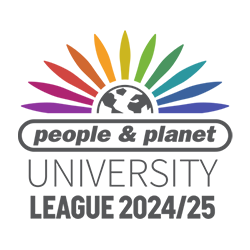-
Study
-
Undergraduate
- Search for a Course
- Undergraduate Open Day & Events
- Application Guides
- Northumbria University UCAS Exhibitions
- Foundation Years
- Undergraduate Fees & Funding
- School & College Outreach
- Continuing Professional Development
-
Postgraduate
- Postgraduate Study Degree
- Postgraduate Research Degrees
- Postgraduate Open Days and Events
- Postgraduate Fees & Funding
- Flexible Learning
- Thinking about a Masters?
- Continuing Professional Development
- Change Direction
-
Student Life
- The Hub - Student Blog
- Accommodation
- Life in Newcastle
- Support for Students
- Careers
- Information for Parents
- Students' Union
- Northumbria Sport
- Be Part of It
-
-
International
International
Northumbria’s global footprint touches every continent across the world, through our global partnerships across 17 institutions in 10 countries, to our 277,000 strong alumni community and 150 recruitment partners – we prepare our students for the challenges of tomorrow. Discover more about how to join Northumbria’s global family or our partnerships.
View our Global Footprint-
Applying to Northumbria
- European Union
- Our London Campus
- Northumbria Pathway
- International Events
- Entry Requirements and Country Representatives
- Global Offices
-
Northumbria Language Centre
- Faculty Requirements
- Acceptable English Requirements
- Pre-sessional English Language and Study Skills
- Academic Language Skills Programmes (ALS)
-
International Fees, Funding & Scholarships
- International Undergraduate Fees
- International Undergraduate Funding
- International Masters Fees
- International Masters Funding
- International Postgraduate Research Fees
- International Postgraduate Research Funding
- International Money Matters
-
Life at Northumbria
- International student support
- Careers
-
International Mobility
- Current Northumbria Students
- Incoming Exchange Students
-
-
Business
Business
The world is changing faster than ever before. The future is there to be won by organisations who find ways to turn today's possibilities into tomorrows competitive edge. In a connected world, collaboration can be the key to success.
More on our Business Services -
Research
Research
Northumbria is a research-rich, business-focused, professional university with a global reputation for academic quality. We conduct ground-breaking research that is responsive to the science & technology, health & well being, economic and social and arts & cultural needs for the communities
Discover more about our Research -
About Us
-
About Northumbria
- Our Strategy
- Our Staff
- Place and Partnerships
- Student Profiles
- Alumni Profiles
- Leadership & Governance
- Academic Departments
- University Services
- History of Northumbria
- Contact us
- Online Shop
-
-
Alumni
Alumni
Northumbria University is renowned for the calibre of its business-ready graduates. Our alumni network has over 246,000 graduates based in 178 countries worldwide in a range of sectors, our alumni are making a real impact on the world.
Our Alumni - Work For Us
What will I learn on this module?
This module will enable you to understand and critically appraise theories and concepts of strategic management approaches in relation to healthcare organisations. You will be introduced to the conceptual foundations of management, focussing on the essential strategic tasks of leadership and management. In particular research and theory on organisational behaviour will foster your understanding of the impact of positive and negative relationships within the organisational healthcare culture. You will learn how leadership and change management skills are addressed as an integral part of management in relation to communication and project planning for healthcare leaders. The module is particularly relevant if you are a senior or aspiring manager working in healthcare but is also very relevant if you have an interest in management in healthcare organisations. As a manager in a strategic role, you could be setting objectives for the organisation and creating the routes towards reaching these goals.
Key area you will study include:-
Understanding healthcare organizations: Challenges for Healthcare Management: global perspectives
Strategic Management: levels of strategy; Strategic planning
Service Area Competitor Analysis: Determining obstacles and boundaries
Internal Environmental Analysis: Resources Management for high performance healthcare
The Organizational setting: The meaning of organizational behaviour; Organizational practices
Managers and managerial behaviour: Principles of management; Managerial roles; Managerial effectiveness
Culture and climate in healthcare organizations: Cross-cultural leadership
You will critically apply knowledge within areas of your discipline and /or healthcare management that will support your future employability and long term career prospects.
How will I learn on this module?
During this module you will engage in a range of learning and teaching activities including lectures, seminars, tutorials and guided learning. You will undertake classroom and virtual based discussions and case study analysis using contemporary literature and research to facilitate your discussion and critical thinking. In addition, you will be required to undertake personal study in relation to the integration of concepts and approaches introduced within the module, in the context of organisational issues within either your place of employment or the healthcare sector generally. Collaborative learning will be facilitated to enable you to learn with, from and about each other to promote an ethos of collaborative / peer working for strategic management of healthcare. Blackboard collaborative will be available on the module E learning portal site to help facilitate this aspect of your learning and enable you to work together in a team with your peers. The diversity in terms of age, background and culture of fellow students will help you to learn from each other and develop a range of skills such as communication, managing and planning and team working. Lecture materials will be made available through the e-learning portal together with links to key materials and websites for example the Institute of Healthcare Management. Clips from broadcastable media will also be available to support classroom based discussion by using rlevant website resources. The module will use electronic digitised reading lists, electronic assessment submission and the Turnitin anti-plagiarism software that will also be used as a formative learning tool.
How will I be supported academically on this module?
The module lead will provide guidance and support for the duration of the module and help you in relation to your academic progress. You will be given guidance in connection with specific issues relating to the module such as assessment requirements, monitoring of your progress and practical issues such as timetabling and room changes. Contact details for all academic and administrative team members are available for you in the programme and module handbooks on the e-learning portal. Electronic teaching and learning materials are also provided and updated on the e-learning portal. This includes module handbooks, assessment information, PowerPoint presentations, electronic digitised reading lists and relevant web links. All these online resources are available out with the scheduled teaching sessions. The University libraries offer generous opening hours and an award -winning range of services. You might find the Skills Programme and online multimedia ‘SkillsPlus’ resources helpful. The University Student Support and Wellbeing Services offer information, guidance, and support to you on a range of issues. They can help if you have a disability or if you need some extra help. If you are an international student, you will also have access to English for Specific Adademic Purposes (ESAP) module to help you further develop your academic writing and study skills.
What will I be expected to read on this module?
All modules at Northumbria include a range of reading materials that students are expected to engage with. Online reading lists (provided after enrolment) give you access to your reading material for your modules. The Library works in partnership with your module tutors to ensure you have access to the material that you need.
What will I be expected to achieve?
By the end of the module :
Knowledge & Understanding:
1. You will be able to understand healthcare organisations in a global context and evaluate the relations between, strategic thinking, strategic planning and strategic healthcare management.
Intellectual / Professional skills & abilities:
2. You will critically appraise organisational behaviour including techniques to manage change and principles of performance management in health services.
Personal Values Attributes (Global / Cultural awareness, Ethics, Curiosity) (PVA):
3. You will be able to use management models to analyse the strengths and weaknesses organisations to help make sound judgements.
4. You will be able to critically analyse the concept of strategic thinking for dealing with complex issues both systematically and creatively.
How will I be assessed?
Your summative assessment for this module is a 3000-word essay. You will choose one essay title from two options relating to strategic management of healthcare issues to write about in your essay.
1. This will test understanding of key healthcare management concepts (MLO 1, 2, 3, 4,)
Formative
You will be asked to provide a sample of approximately 1000 words of your chosen essay topic.( All MLOs)
Pre-requisite(s)
N/A
Co-requisite(s)
N/A
Module abstract
This module will introduce you to theories and concepts of strategic approaches in relation to the management of healthcare organisations. Leadership and change management skills are addressed as an integral part of management in relation to communication and project planning for healthcare leaders. The module is particularly relevant to senior or aspiring managers working in healthcare or if you have an interest in strategic management in health organisations. Learning and teaching includes classroom-based and virtual lectures and seminar sessions, individual or group tutorials, case-study discussions and directed self-study.
The module is assessed by a 3000 word essay. You will choose one essay title from two options relating to strategic management of healthcare issues to write about in your essay. This will demonstrate your understanding of relevant concepts and your ability to apply these in the context of healthcare organizations.
Course info
Credits 30
Level of Study Postgraduate
Mode of Study 16 months Full Time
2 other options available
Department Social Work, Education and Community Wellbeing
Location City Campus, Northumbria University
City Newcastle
Start January 2025
All information is accurate at the time of sharing.
Full time Courses are primarily delivered via on-campus face to face learning but could include elements of online learning. Most courses run as planned and as promoted on our website and via our marketing materials, but if there are any substantial changes (as determined by the Competition and Markets Authority) to a course or there is the potential that course may be withdrawn, we will notify all affected applicants as soon as possible with advice and guidance regarding their options. It is also important to be aware that optional modules listed on course pages may be subject to change depending on uptake numbers each year.
Contact time is subject to increase or decrease in line with possible restrictions imposed by the government or the University in the interest of maintaining the health and safety and wellbeing of students, staff, and visitors if this is deemed necessary in future.
Useful Links
Find out about our distinctive approach at
www.northumbria.ac.uk/exp
Admissions Terms and Conditions
northumbria.ac.uk/terms
Fees and Funding
northumbria.ac.uk/fees
Admissions Policy
northumbria.ac.uk/adpolicy
Admissions Complaints Policy
northumbria.ac.uk/complaints













